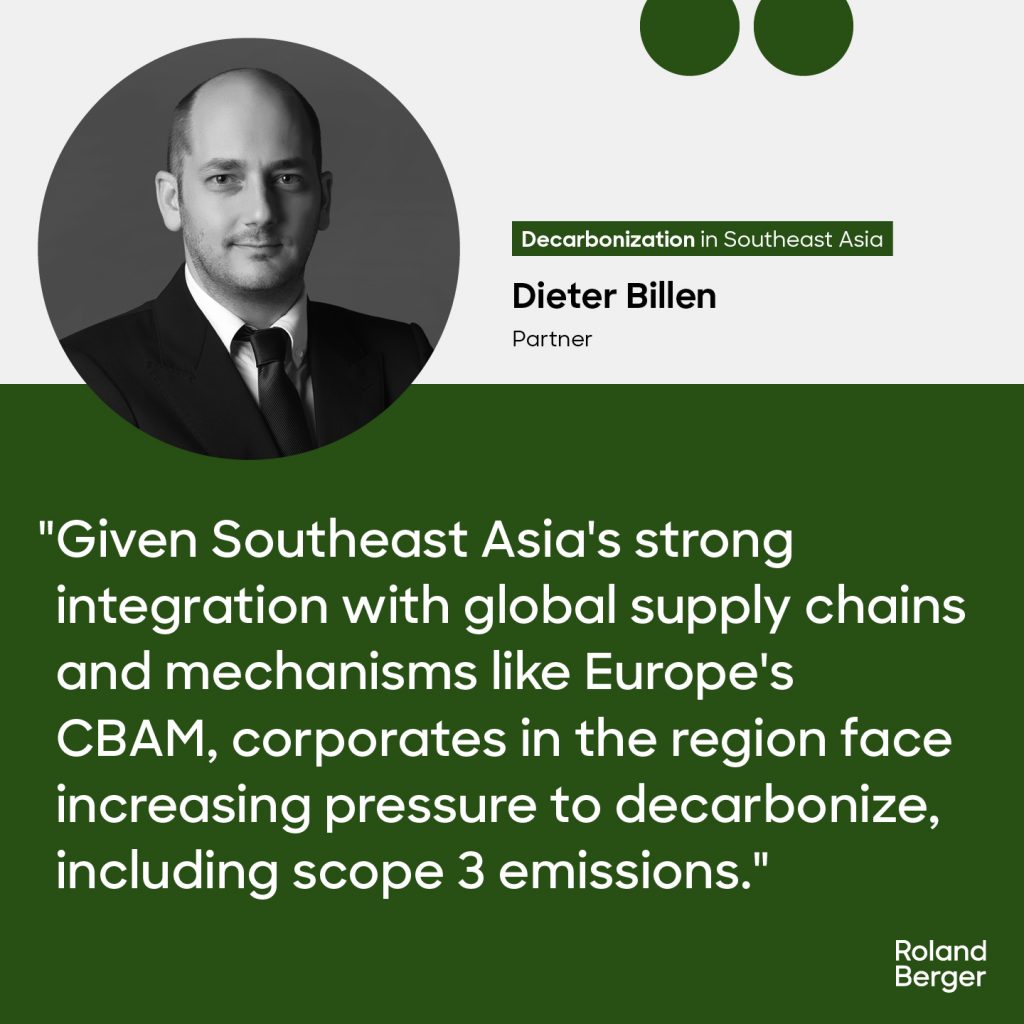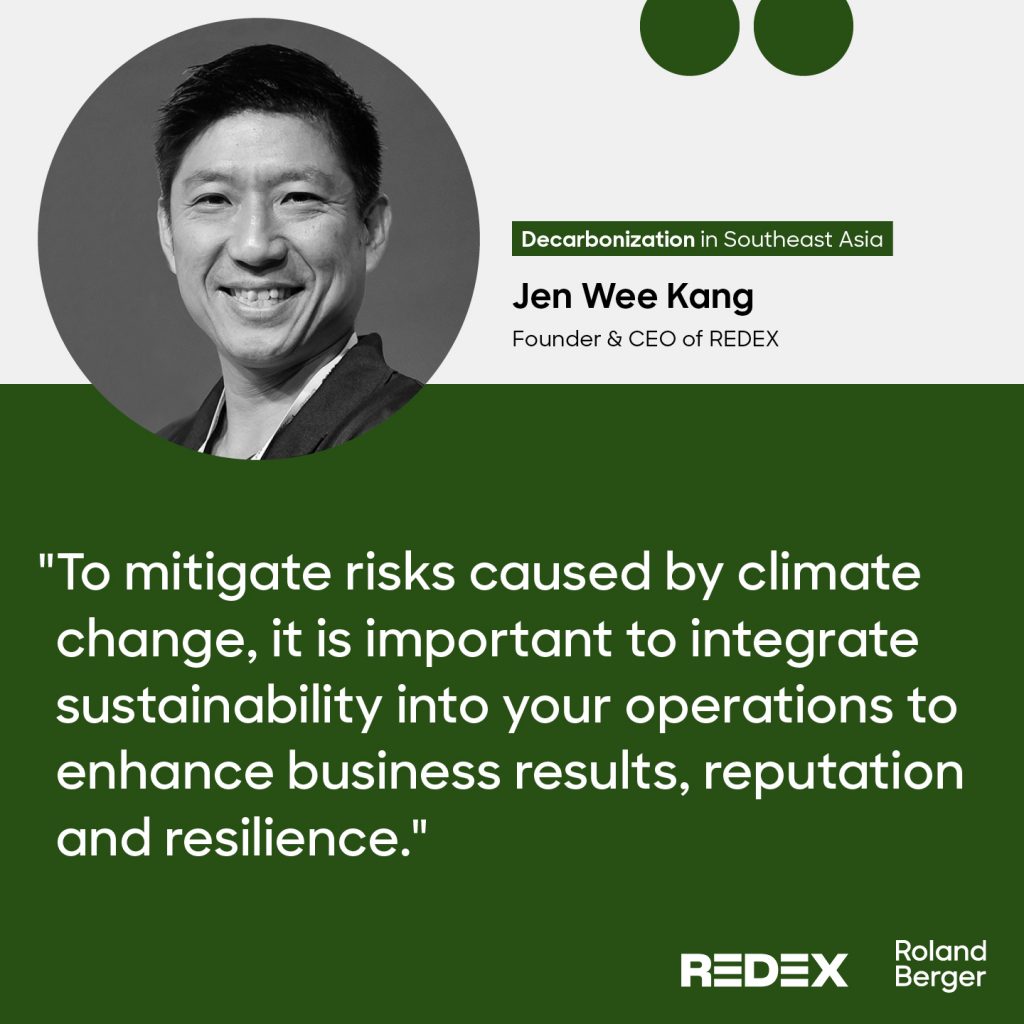Southeast Asia, home to a 700 million population, is one of the world’s most vulnerable regions to climate change. What are the climate risks imperiling businesses in Southeast Asia and how can corporates decarbonise to mitigate these risks?
To address these issues, REDEX and Roland Berger jointly organised the webinar “Greening Corporate Landscape – Insights and Outlook on Decarbonisation in Southeast Asia”. The webinar delved into Southeast Asia’s sustainability landscape, focusing on decarbonisation and renewable energy.
REDEX Founder and CEO Kang Jen Wee contributed insights about renewable energy certificates (RECs) and how they can be a pillar of corporate sustainability strategy. As RECs trace the consumption of electricity to a renewable source, they are a foolproof tool for companies to account for their Scope 2 emissions. In addition, the traceability of RECs allows them to be used to prove claims of products being manufactured from green energy. This means that RECs can play a significant role in the decarbonisation of supply chains and management of Scope 3 emissions, enabling corporates to make giant strides to achieve their green energy targets and accelerating the global transition to net zero.
A big thank you to Roland Berger Partner Dieter Billen for his insightful contributions on climate risks and the state of sustainability in Southeast Asia. We are also grateful and honoured to partner Roland Berger and contribute to the knowledge and practice of corporate sustainability. Last, but not least, we thank the attendees for their support and hope they found the session useful.



